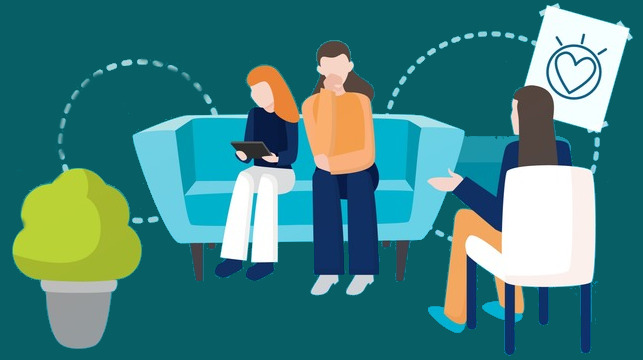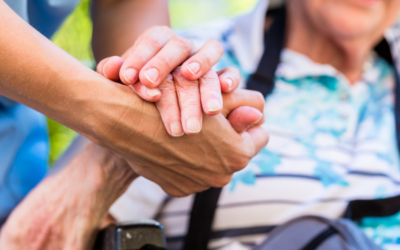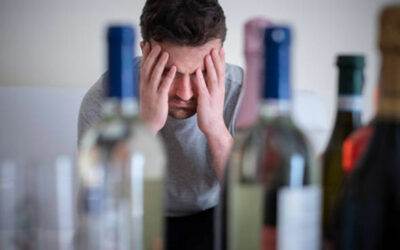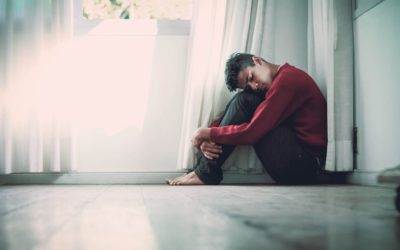Depression
Depression
Depression can be defined as intense sadness that includes feelings like loss of hope, helplessness for a prolonged period of time which keeps you away from living your daily routine life. Depression not only causes sadness but also loss of interest or activities, once enjoyed. It can lead to a variety of emotional and physical problems and can decrease a person’s ability to function at work and at home.
Fortunately, depression is treatable. ‘Psychologist near me depression’ can help you get rid of depression and allow living your daily routine life.
Types of Depression:
1) Major Depressive Disorder (MDD)
Major depressive disorder is closely related to clinical depression. When people discuss or talk about clinical depression it generally refers to major depressive disorder. It is a mood disorder characterised by several features:
- Depressed or intensely sad mood
- Lack of interest in activities once enjoyed a lot
- Fluctuations in weight
- Changes in sleep
- Fatigue
- Feelings of worthlessness, guilt, shame
- Unable to concentrate
- Negative thoughts like death or suicide
2) Persistent Depressive Disorder (PDD)
PDD is a chronic depression lasting for more days than not for at least two years. It can be mild, moderate, or severe. PDD symptoms include:
- Feelings of sadness
- Loss of interest and pleasure
- Anger and irritation
- Feelings of guilt, shame
- Low self-esteem
- Difficulty falling or staying asleep
- Sleeping too much
- Feelings of hopelessness
- Fatigue and lack of energy
- Changes in appetite
- Trouble concentrating
3) Bipolar Disorder
It is a mood disorder characterized by periods of abnormally elevated mood known as mania. These periods can be mild or they can be so extreme as to cause marked impairment with a person’s life, require hospitalization, or affect a person’s sense of reality. It falls under major depression. Bipolar disorder symptoms include:
- Fatigue, insomnia and lack of energy, enthusiasm
- Unexplained aches, pains
- Hopelessness and loss of self-esteem
- Irritability and anxiety
- Indecision and disorganization
4) Postpartum Depression (PPD)
Pregnancy leads to a lot of significant hormonal changes. These hormonal changes often affect a woman’s moods. PPD symptoms can be more severe and long-lasting.
- Low mood, feelings of sadness
- Severe mood swings
- Social withdrawal
- Trouble bonding with your baby
- Appetite changes
- Feeling helpless and hopeless
- Feeling inadequate or worthless
- Anxiety and panic attacks
- Thoughts of hurting yourself or your baby
- Thoughts of suicide
5) Premenstrual Dysphoric Disorder (PMDD)
PMDD symptoms may include:
- Extreme fatigue
- Feeling sad, hopeless, or self-critical
- Severe feelings of stress or anxiety
- Mood swings, often with bouts of crying
- Irritability
- Inability to concentrate
- Food cravings or binging (eating to excess)
6) Seasonal Depression
As the name indicates, it is a type of depression that is seasonal. For most people, it tends to happen during the winter months. Seasonal depression symptoms include:
- Social withdrawal
- Increased need for sleep
- Weight gain
- Daily feelings of sadness, hopelessness, or unworthiness
7) Situational Depression
Situational depression is clinically known as an adjustment disorder. A depression occurred due to specific situations is known as situational depression. Situational depression may occur due to:
- Death of a loved one
- A serious illness or other life-threatening events
- Going through divorce, separation or child custody issues
- Being in emotionally or physically abusive relationships
- Being unemployed or facing serious financial difficulties
- Facing legal troubles
8) Atypical Depression
Atypical depression may sound complicated or perplexing to a normal human being. It’s like temporary depression which goes away with the occurrence of positive happenings. Having atypical depression can be challenging as well as critical, because you may appear normal to others as well as to yourself. But, deep down the line, it may be the beginning of an episode of major depression. Signs of atypical depression may include:
- Increased appetite and weight gain
- Disordered eating
- Poor or ugly body image
- Sleeping much more than usual
- Insomnia
- Heaviness in arms or legs that lasts an hour or more a day
- Feelings of rejection and sensitivity to criticism
- Aches and pains
Reasons for Depression:
Any individual can face depression irrespective of caste, gender, profession, nationality, socio-economic status, etc. There can be tons of reasons for depression and it varies from person to person. The reasons of depression can range from biological to circumstantial. Certain common causes of depression are:
1) Family History
Family history is a big factor that may cause depression. It is a biological depression that may occur due to genes.
2) Brain Structure
There’s a greater risk for depression if the frontal lobe of your brain is less active. However, scientists don’t know if this happens before or after the onset of depressive symptoms.
3) Early childhood trauma
Early childhood traumas can be circumstantial. Experiences of risky, threatening or dangerous situations like a riot, curfew or witnessing a murder or any brutal acts can add a lifetime fear, unless and until it is properly treated under therapy for depression.
4) Medical conditions
Chronic illness, insomnia, chronic pain, or attention-deficit hyperactivity disorder (ADHD) are some of the medical conditions which may put you in the risk of depression.
5) Drug Use
Consuming too much drugs or alcohol puts you at the risk of depression. People suffering substance use problem can face depression too.
Psychological causes of Depression:
People with low self-esteem, who are consistently pessimistic towards themselves and world, or who are readily overwhelmed by stress, may be prone to depression. Other psychological factors, such as perfectionism and sensitivity to loss and rejection, may increase a person’s risk for depression.
Signs and Symptoms of Depression in Women:
Signs and symptoms of depression vary from woman to woman. However, common signs and symptoms include:
- Feelings of emptiness, hopelessness, despair
- Irritability, anxiousness and guilt
- Feelings of exhaustion
- Loss of interest in previously pleasurable activities
- Inability to concentrate or remember details
- Suicidal thoughts or attempts of suicide
- Sleep disturbances; sleeping too much or too little, insomnia
- Changes in appetite like eating too much or too little
- Physical symptoms like aches and pains, cramps, headaches, digestive issues, breast tenderness, bloating
- Lack of energy
- Feeling out of control
- Severe mood volatility (Then sad, now happy)
- Panic attacks
- Feelings of tension
- Disinterest in day-to-day activities and relationships
Signs and Symptoms of Depression in Men:
Signs and symptoms of depression vary from man to man. Men are likely to exhibit some of the following symptoms of depression:
- Feel sad or “empty”
- Feeling irritated, angry, hopeless, or anxious
- Loss of interest in work, family, or other hobbies or interests (including sex)
- Feeling very tired
- Difficulty concentrating
- Sleep disturbance, unable to sleep or sleeping too much
- Changes in eating habits, overeating or not eating at all
- Thoughts of suicide, suicide attempts
- Somatic complaints such as aches or pains, headaches, digestive problems
- Unable to meet daily responsibilities
Treatment for Depression:
Depression is certainly treatable. ‘Psychologist near me for depression’ or ‘depression disorder psychiatrist near me’ can help you cope with any sort of depression. The treatment for anxiety and depression varies from person to person and depends upon the type of depression and the condition an individual is facing.
Medication:
Antidepressants may produce some improvement within the first week or two of use. Full benefits may not be seen for a period of two to three months. If a patient feels slight or no improvement at all after several weeks, his or her psychiatrist can alter the dose of the medication or add or substitute another antidepressant.
Depression disorder psychiatrists normally recommend continuing intake of medication for six or more months after symptoms start to improve.
Psychotherapy:
Psychotherapy often called talk therapy is a face to face conversation between a depressed person and a psychologist for depression. Generally, such conversations are conducted when both the persons sit alone in a room. Cognitive Behavioural Therapy (CBT) is a form of therapy focused on the present and problem-solving. CBT helps a person to recognize distorted thinking and then change behaviours and thinking. It is the most proven effective form of treatment for depression.
Electroconvulsive Therapy:
It can also be called as shock therapy. It is used for the people who are going through major depression or bipolar disorder and haven’t responded to other forms of treatment. A brief electrical stimulation of a brain, while the patient is under anaesthesia is involved in electroconvulsive therapy. A patient typically receives ECT two to three times a week for a total of six to 12 treatments.
Where to find Psychological therapy or treatment for depression?
You can use our hassle-free Search Licensed Psychologist directory for psychological treatment for depression or anxiety and depression disorder. Enjoy the benefits of all licensed and trusted psychologists of all specifications or as per your needs.
Related Blogs
The Healing and Coping with Sorrow and Loss
Grief is a natural response to loss, and while it’s often associated with the death of a loved one, it can also arise from other significant life changes, such as the end of a relationship,
Addressing the Challenges of Old Age: A Guide to Understanding and Support
Addressing the Challenges of Old Age: A Guide to Understanding and Support By addressing challenges and providing support, we can ensure that our elderly loved ones enjoy a higher quality of life in their golden years if you take the help of counselors enlisted on our...
How Does Alcohol Affect Your Health and Wellbeing?
If you're struggling from alcohol addiction you may feel like there's no way out! But the addiction recovery is possible! Yes, you read right! Addiction recovery is possible. Alcohol addiction or Alcoholism includes consistently drinking alcohol, often to excess, and...
How Counselling Therapists near you can help after a breakup
Breakup is probably an inevitable part of every individual’s life. Breakups are the hardest to digest. Some people may move on quickly, but in some cases, a person may feel angry, bitter, sad or depressed. It’s a life disturbing act as it has deep impacts. The finish...
Eating Disorders – Types, Symptoms, Treatment
What are Eating Disorders? Eating disorders are complex mental health conditions identified by unhealthy, obsessive and irregular eating habits. It affects a person physically, emotionally and socially. Eating disorders hit a person’s relationship with food, eating...
What is Depression and How to Overcome It?
What is Depression? Depression is a feeling of severe despondency and dejection. Fortunately, it is curable. Depression causes feelings of sadness and/or a loss of interest in activities once enjoyed. It can lead to a variety of emotional and physical problems and can...
What are you waiting for?
You can’t change the past, but by working together with a counselor, you will understand and resolve challenges in your life. Contact a counselor for relieving emotional distress and other cognitive health issues for a better tomorrow.













